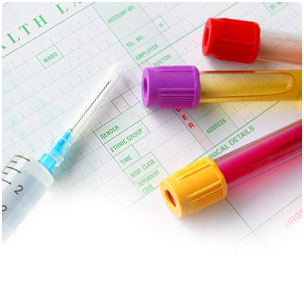
Search
Statistics
We have 222 registered usersThe newest registered user is raheelmemon
Our users have posted a total of 1140 messages in 613 subjects
If you are seeing this, you have attempted to link to the UpToDate widget but are experiencing a problem. Please visit UpToDate for more information.

TNF Antagonist Infliximab for Treatment-Resistant Depression: The Role of Baseline Inflammatory Biomarkers
FORUM FOR PSYCHIATRY RESIDENTS :: Psychiatry :: Psychiatry-Neurology-Psychology discussion :: Psychiatry In Depth
Page 1 of 1
 TNF Antagonist Infliximab for Treatment-Resistant Depression: The Role of Baseline Inflammatory Biomarkers
TNF Antagonist Infliximab for Treatment-Resistant Depression: The Role of Baseline Inflammatory Biomarkers
A Randomized Controlled Trial of the Tumor Necrosis Factor Antagonist Infliximab for Treatment-Resistant Depression
The Role of Baseline Inflammatory Biomarkers
Source: JAMA Psychiatry. 2013;70(1):31-41
The Role of Baseline Inflammatory Biomarkers
Source: JAMA Psychiatry. 2013;70(1):31-41
Increased concentrations of inflammatory biomarkers predict antidepressant nonresponse, and inflammatory cytokines can sabotage and circumvent the mechanisms of action of conventional antidepressants.

Objectives
To determine whether:
- Inhibition of the inflammatory cytokine tumor necrosis factor (TNF) reduces depressive symptoms in patients with treatment-resistant depression and
- Whether an increase in baseline plasma inflammatory biomarkers, including high-sensitivity C-reactive protein (hs-CRP), TNF, and its soluble receptors, predicts treatment response.
Design Double-blind, placebo-controlled, randomized clinical trial.
Participants A total of 60 medically stable outpatients with major depression who were either on a consistent antidepressant regimen (n = 37) or medication-free (n = 23) for 4 weeks or more and who were moderately resistant to treatment as determined by the Massachusetts General Hospital Staging method.
Interventions Three infusions of the TNF antagonist infliximab (5 mg/kg) (n = 30) or placebo (n = 30) at baseline and weeks 2 and 6 of a 12-week trial.
Main Outcome Measures The 17-item Hamilton Scale for Depression (HAM-D) scores.
Results
- No overall difference in change of HAM-D scores between treatment groups across time was found.
- However, there was a significant interaction between treatment, time, and log baseline hs-CRP concentration (P = .01), with change in HAM-D scores (baseline to week 12) favoring infliximab-treated patients at a baseline hs-CRP concentration > 5 mg/L and favoring placebo-treated patients at a baseline hs-CRP concentration < 5 mg/L.
- Exploratory analyses focusing on patients with a baseline hs-CRP concentration greater than 5 mg/L revealed a treatment response of 62% (8 of 13 patients) in infliximab-treated patients vs 33% (3 of 9 patients) in placebo-treated patients (P = .19).
- Baseline concentrations of TNF and its soluble receptors were significantly higher in infliximab-treated responders vs nonresponders (P < .05), and
- Infliximab-treated responders exhibited significantly greater decreases in hs-CRP from baseline to week 12 compared with placebo-treated responders (P < .01).
- Dropouts and adverse events were limited and did not differ between groups.
Conclusions
This proof-of-concept study suggests that TNF antagonism does not have generalized efficacy in treatment-resistant depression but may improve depressive symptoms in patients with high baseline inflammatory biomarkers.
 Similar topics
Similar topics» Role of ADHD Treatment on Blood Pressure & Heart Rate
» Subcallosal Cingulate Deep Brain Stimulation for Treatment-Resistant Unipolar and Bipolar Depression
» Hallucinogen Psilocybin (Active ingredient in Magic Mushrooms): Potential Role in Treatment of Depression, Anxiety & possibly Cluster Headaches.
» Exercise: a critical role in the treatment of Parkinson's disease
» BRITE-MD Trial: Quantitative EEG Biomarkers for Predicting Likelihood and Speed of Achieving Sustained Remission in Major Depression
» Subcallosal Cingulate Deep Brain Stimulation for Treatment-Resistant Unipolar and Bipolar Depression
» Hallucinogen Psilocybin (Active ingredient in Magic Mushrooms): Potential Role in Treatment of Depression, Anxiety & possibly Cluster Headaches.
» Exercise: a critical role in the treatment of Parkinson's disease
» BRITE-MD Trial: Quantitative EEG Biomarkers for Predicting Likelihood and Speed of Achieving Sustained Remission in Major Depression
FORUM FOR PSYCHIATRY RESIDENTS :: Psychiatry :: Psychiatry-Neurology-Psychology discussion :: Psychiatry In Depth
Page 1 of 1
Permissions in this forum:
You cannot reply to topics in this forum

» L-Methylfolate: Who Will benefit
» Vitamins & Supplements in Clinical Practice.
» Imaging Biomarkers for Outcomes in Mild TBI
» Q.5 Clozapine Neutopenia
» Treating Disorders!
» Cortical Abnormalities in Adults & Adolescents with MDD
» Efficacy of Antipsychotics in Pediatric Acute Mania
» Obsessive Compulsive Disorder in Adults: Which Treatment is Better?